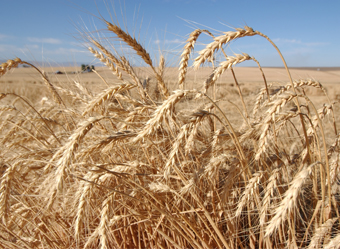Egypt announced Monday that it had finished sieving a Romanian wheat cargo halted for containing poppy seeds, according to the country’s Minister of Supply Ali Moselhy, sowing confusion among traders who said the process should take several more weeks to complete.
Grain markets have been closely watching the progress of two wheat cargoes flagged for containing poppy seeds, with suppliers fearing disruptions to the world’s biggest wheat importer after a similar trade row last year.
An official at the Ministry of Agriculture told Reuters later that the shipment was still being sieved and the process had not been completed, though it was not possible to immediately resolve the contradictory comments.
The two ministries have in the past been on opposite ends of a debate over quality controls, with the agriculture ministry and its quarantine service favouring tough import requirements compared with more lax rules from the Supply Ministry seen as facilitating the country’s billion-dollar grain trade.
Last year, Egypt temporarily banned ergot, a common grain fungus, leading suppliers to briefly stop selling, a scenario some officials have been keen to avoid repeating.
Egyptian prosecutors said on Sunday they had approved a decision to sieve the Romanian wheat cargo, and quarantine inspectors and grain traders said they expected the process to take several weeks.
The supply minister, however, said on Monday the sieving had been completed and that the grain was ready to be used, adding that a decision on the second cargo, a French wheat shipment, was still awaiting approval from the public prosecutor.
The agriculture ministry official said a decision on whether to use the wheat or re-export it would only be taken after completing the sieving process, which he said was still underway.
Traders interpreted the minister’s statement as an attempt to bring them back to the deal table and send a signal that the situation is under control after a state tender last week had high risk premiums and did not attract many sellers.
“They need the wheat and they want to send a message to all bidders that everything is under control,” said Hesham Soliman, president of Med Star for Trading, an Egyptian grain trading company.
A quarantine inspector close to the matter has said sieving is not possible at the Red Sea port of Safaga, where the grains are being held, and suppliers have feared that the process could drag on for weeks if the grains have to be transferred, leading to costly demurrage fees.
Source: Reuters
